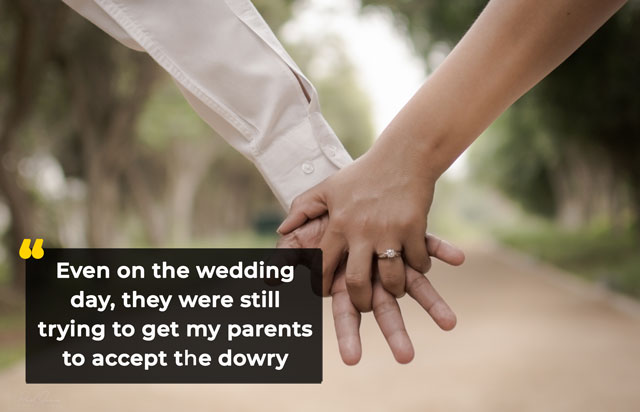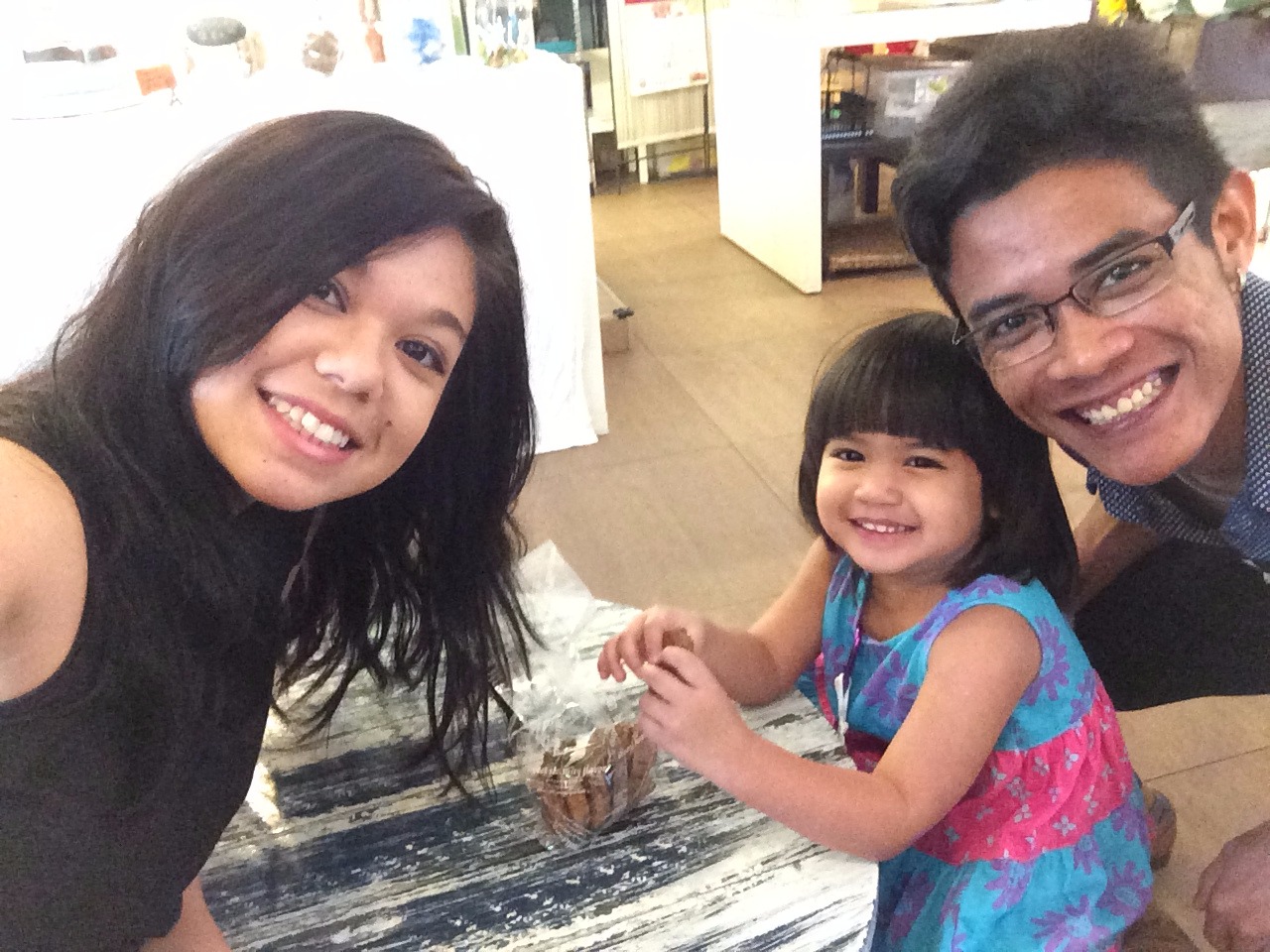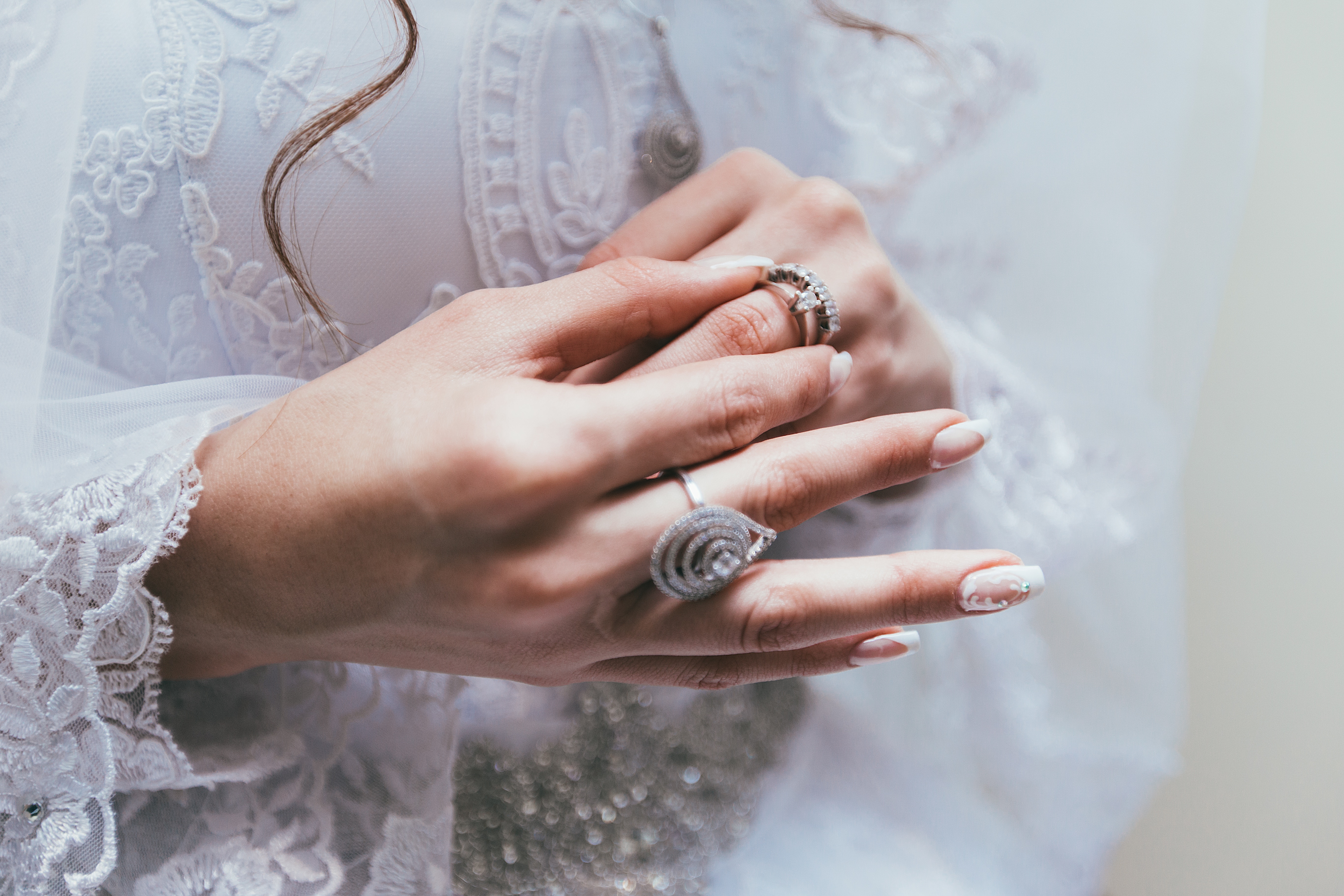First comes the proposal, then the wedding, and then the house. This was once the norm, but not anymore.
In Singapore, when you’ve been in a relationship for a reasonable amount of time, you can expect your partner to ask you one crucial question: “Want to BTO?”
Today, many couples apply for a BTO (Build-To-Order) flat before proposing. Marriage comes a little later, and it can happen before or after getting the keys to their home.
Logically, it makes more sense. It's pragmatic, as the wait for a BTO can be (dreadfully) long. The completion of BTO projects can take around 2.5 to 5 years. And let’s face it. Getting a house in Singapore is stressful. In fact, it’s downright terrifying.
It doesn’t matter if you’re in a relationship or if you’re single, buying a house here is crazy expensive despite the various grants available. It’s also incredibly difficult because you’re competing with hundreds of other buyers bidding for the same flat you wish to get. And when you are getting something which you will most likely have to continue paying for for the next 20 to 30 years, you can expect everyone to 'fight' for their ideal choice.
This competitiveness for a BTO forces many young Singaporeans to commit themselves into a relationship when they may not exactly be ready.
THE PRESSURE TO FIND LOVE FASTER
Because of the amount of time it takes for you to successfully get the keys to your new home, it means having to find the person you are 'meant to be with' a lot faster.
I know of singles in their mid 20s who are still working on finding the right person to date, let alone have a relationship with.
Dating itself has become a more daunting task than before. From the get-go, we start thinking about whether we see a future with this person, because we no longer have time to spend on someone whom we’re not going to spend the rest of our lives with.
A lot of singles in their mid and late 20s go into their first date hoping that it’ll be their last first date. We’re no longer dating to date, but we’re dating for marriage. I’ve even heard a couple of my singles friends tell me, “I want my next boyfriend to be my last one.”
Sophia, 25 and single, shared how she goes into every first date subconsciously analysing everything about her date, to get a sense of whether she sees herself spending the rest of her life with him.
“First dates used to be about having a good night out while getting to know someone,” she shares. “Now I find myself thinking about stuff you’d usually only start thinking about after knowing someone for a couple of months like “Does he want kids?” and “How religious is he?””
As much as it stinks for people like Sophia, who thought dating would be “fun and enjoyable”, buying a house in Singapore means having to think about our future a lot quicker.
It's not a bad thing to date with the purpose of marriage of course, but it may not necessarily be a good thing to be bogged down by the practicalities of what is seemingly a talk for much later on. While applying for a BTO is a great way to get us to plan for our future early, it also, in a lot of ways, ruin romance.
IS OUR HOUSING SYSTEM A CURSE?
But it’s not just the singles who are stressed out. Couples are having to commit to the person they are with a lot earlier in their relationship. And while that’s not exactly a problem, it does provide immense pressure to someone who's not ready for that level of commitment, while facing their partner who is.
No longer do we have ample time in our hands to enjoy the ‘honeymoon phase’ of a relationship. While there are the lucky few who stay with their school sweethearts for 10 years, a lot of us only find “the one” somewhere in our mid 20s.
But there are instances where despite having your lives planned out together, relationships simply don’t work out.
What happens when you have a BTO on your way, and you realise that you can no longer see a future with the person you are with?
I was surprised to find that there wasn’t a lack of post-BTO breakup stories within my circle of friends alone.
Alvin, 27, went through a breakup with his girlfriend of four years after they had successfully balloted for their home last year.
“She said that she didn’t see a future with me anymore and just needed some time for herself,” he shared. “It was later that I found out there was another guy.”
“I guess no matter how much you plan for something, sometimes life just kicks you in the nuts,” Alvin laughed.
A breakup was the last thing he had expected to happen, especially at a stage of his life where he thought he had his future all planned out.
What makes BTOs all the more scary are the implications that cancelling your application causes.
There’s no doubt that you end up forfeiting the money that you’ve invested, depending on how far along in the process you are.
You also lose your first-time applicant advantages, and if you want to apply for a BTO with your next partner, or as a single, you have to wait at least a year to be able to do so.
“It sucks that the implications of forfeiting a BTO are so costly, literally,” Alvin says. “But at least it’s taught me to take my time and not rush into settling down with someone.”
Samantha, 25, whose boyfriend also broke up with her after applying for their BTO together, believes that a BTO is an expectation created by society.
“Instead of asking, 'Proposed already ah?', people ask, 'BTO already ah?' which I think indirectly gives couples a lot of pressure to get a BTO.”
It seems like we assume getting a BTO guarantees a relationship. But there rarely is ever a guarantee on anything.
“A lot of couples rush into getting a BTO because they think that might give them some ‘security’”, she shared. “But that shouldn’t be case, you should apply for a BTO because you’re secure about your relationship.”
SOMETIMES YOU JUST WORK THROUGH IT
It’s normal to feel unsure about your relationship and stumble onto rough patches along the way. The stress that comes with the BTO doesn’t help either. What was meant to be a significant part of a couple’s life has become a stressful endeavour instead.
Couples who have successfully gotten their house have had their own share of rough patches along the way. But these couples found a way to set things on track to start building their future with their partners.
Mabel, 28, who has now secured her home through Sales of Balance (SFB), wasn’t sure if she was ready to commit to her boyfriend of 3 years before they applied for it in May 2018.
“I didn’t know if I was ready to commit,” she shared. “Because it’s not only about committing to a house, but committing to the rest of my life ahead of me.”
“Whenever we spoke about applying for a BTO, a part of me wanted it, but the other part was also scared.”
Today, Mabel and her fiancé have the keys to their house, and will be getting married in a few months' time.
“When I told my fiance about my fears, we talked about it and decided to make it work together,” she continued. “I saw his efforts in trying to make our relationship work and I just wanted to do the same.”
For Alexa, 25, applying for a BTO was a natural next step in their relationship. When they applied for their BTO, they had been together for two years and knew they were ready for the commitment.
Yet, it was after they were successful in their ballot that Alexa’s relationship hit a rough patch.
“That ‘ready’ feeling became very different as we went through a seriously rough patch that really made us think if we should move forward,” she shared.
Like anyone else in her position, Alexa didn’t want to go through the hassle of withdrawing their application.
“There was definitely a lot of pressure because this was an investment we had gotten ourselves into.” she continued. “This really showed me that the BTO system can really be a burden.”
While in many ways, having a BTO on the line does encourage you to make things work with your beau and give your relationship another chance, it doesn’t allow you to consider your relationship rationally.
“We had to tell ourselves to consider the future of our relationship as if there was no BTO involved,” says Alexa. “Because we knew that if we let the BTO decide our future, we wouldn’t be happy.”
Fortunately, Alexa and her boyfriend managed to get past their rough patch and are eager to start their life together today.
DON’T JUMP THE GUN
It’s normal to have the urge to jump on a bandwagon that everyone around you is on. We all want to have a great home by the age of 35. We all have an ideal ‘plan’ of where we want to be by the time we’re in our late 30s.
Despite being single for the past two years, Jason, still has no qualms about rushing into a relationship at 27.
“I get that in Singapore, settling down with someone takes a lot more time. But I would much rather wait until 35 and get my bachelor pad than get a BTO with someone I'm unsure about,” shares Jason. “Singlehood doesn’t scare me, being with the wrong one does.”
BTOs should be a mere stepping stone into the future you want to build, it shouldn’t be the foundation of it.
“Your future shouldn't depend on getting a BTO,” says Alexa. “It’s better to be 30 and single than to be with someone you’re unsure about.”
Also read: Hustle Together, Stay Together - These Singaporean Couples Prove That Office Romance Can Work

“I can afford it and having children was something I wanted to check off my list,” Germaine casually replied when I asked her why she married fresh out of law school instead of working first. This 24-year-old is a mother of two and none were born out of wedlock. That still didn’t stop friends and relatives from gossiping initially.
These are the ‘words of wisdom’ you hear as a young newly wed. Germaine took it in her stride, but my ex-colleague, Ryan, and his wife struggled. Ryan was often forced to defend the ring on his finger whenever he went for social gatherings. Having to explain his choice to marry at 22 caused more anxiety than joy. To avoid the repetitive conversation with strangers, the couple has since decided to keep their rings at home. While many are against marrying marrying young, it seems like it is the most practical option for Singaporeans. There is a 3 to 5 year wait between applying for a BTO and actually getting it. Also, a couple gets a larger grant if the collective income between the two of them is less than $2,500 a month. This is normally possible only if one party is working. However, most still prefer to wait till their late twenties or early thirties before they wed.“You’ll regret it next time.”
“You’re missing out on life.”
“You’re wasting your youth!”

Screenshot taken from the comment's section on Naomi Neo's wedding video
Are We Just Reckless And Naive?
Getting married isn't a decision made overnight. No matter how young the couple is, a lot of thought would have been put into their future: their first home, the wedding preparation, and family planning. Sometimes, the conclusion derived from discussions and all that 'thought' is simply to marry young. Even with shotgun marriages, there is always an option of aborting the baby or giving it up for adoption. Tying the knot is always a choice and it's not because we don't know any better. (Header image source: @naomineo_) Traditionally, because women join their husband's family upon marriage, the dowry is used to compensate the bride's family for raising their daughter well and ‘giving her away’. Another common practice is where a dowry is given to the groom's family as financial relief for future costs incurred from taking care of the new wife. Regardless, the idea is the same: a dowry is given as a remuneration of sorts.
Since Singaporean men and women have equal rights to education and career opportunities, and that both husband and wife are free to visit their families even after marriage (considering the idea of 'giving the daughters away'), there is no longer a need to ‘reimburse’ any party in the marriage.
The giving of dowries should be an obsolete practice then. So why do older generations still insist on keeping this tradition?
Traditionally, because women join their husband's family upon marriage, the dowry is used to compensate the bride's family for raising their daughter well and ‘giving her away’. Another common practice is where a dowry is given to the groom's family as financial relief for future costs incurred from taking care of the new wife. Regardless, the idea is the same: a dowry is given as a remuneration of sorts.
Since Singaporean men and women have equal rights to education and career opportunities, and that both husband and wife are free to visit their families even after marriage (considering the idea of 'giving the daughters away'), there is no longer a need to ‘reimburse’ any party in the marriage.
The giving of dowries should be an obsolete practice then. So why do older generations still insist on keeping this tradition?
“It’s Not About Money!”
 It’s common courtesy for the side receiving the dowry to return part of it in cash or by covering some of the wedding expenses. Ultimately, most of the money is given back or used to benefit the couple so arguably it isn’t about how much, but rather a matter of staying rooted in our culture.
With that said, a token sum of $50 should suffice to pass on the dowry for tradition's sake, but you still hear exorbitant numbers being thrown around.
It’s common courtesy for the side receiving the dowry to return part of it in cash or by covering some of the wedding expenses. Ultimately, most of the money is given back or used to benefit the couple so arguably it isn’t about how much, but rather a matter of staying rooted in our culture.
With that said, a token sum of $50 should suffice to pass on the dowry for tradition's sake, but you still hear exorbitant numbers being thrown around.
If all children are priceless, $100,000 won't justify the worth of one’s daughter either. Only items sold in a business have a price tag justifying its worth. If we put a price on our daughter’s hand in marriage, we’re taking a huge step back in time, undoing all the efforts made to empower the women of today. In a way, the 'bride’s price' objectifies women and it should never be an accurate representation of someone’s worth. In the case where grooms pay the dowry, an expensive one can only be justified if daughters are perceived to be more precious and valued than sons – where true love and sincerity alone is considered a ‘low ball price’ for marrying a woman. Has the feminist movement tipped the scales of equality in their favour or is it just a money making opportunity? Millennials we reached out to unanimously agreed that dowries place unnecessary stress on engaged couples. We’ve even heard of couples who had to cut back on their ideal wedding budget or loan money from their parents to afford the dowry. In worst case scenarios, wedding planning becomes a failed business deal and both families end up falling out – just because of dowries. Clearly, the dowry only benefits one party. I thought no one would want to pay money in the name of tradition – I was wrong."Where got daughter worth $50 one?"
 For some, being able to afford the expensive tradition gives a sense of pride because it reflects status and wealth. And for wealthier families that can actually afford, most pay for they fear ‘losing face’.
Compared to an expensive dowry, having a good job, a healthy bank balance, and properties under your name would be a better gauge of one's net worth and financial independence. Even if one has millions to spare, paying the dowry shouldn’t be a platform to boast about your wealth anyway.
As newlyweds, there are so many better ways to spend money, like furnishing your new home or saving for your first child.
Then, there are those concerns tying the uncorroborated link between a dowry and it's importance in the future of a marriage:
For some, being able to afford the expensive tradition gives a sense of pride because it reflects status and wealth. And for wealthier families that can actually afford, most pay for they fear ‘losing face’.
Compared to an expensive dowry, having a good job, a healthy bank balance, and properties under your name would be a better gauge of one's net worth and financial independence. Even if one has millions to spare, paying the dowry shouldn’t be a platform to boast about your wealth anyway.
As newlyweds, there are so many better ways to spend money, like furnishing your new home or saving for your first child.
Then, there are those concerns tying the uncorroborated link between a dowry and it's importance in the future of a marriage:
Ultimately, like our chou chou, a comforting pillow we hug or smell to feel safe, the dowry is a false sense of security we cling onto. If someone is innately a violent person or lacks the courage to stand up for his wife, no amount of money can change that. You can only trust your daughter’s choice in your son-in-law and her strength to walk away if things turn sour, or trust in the Singapore law to protect her."If I don't pay the dowry, they might treat my daughter poorly."
Where’s the safety deposit in case something happens to your daughter or if she runs off with another man? We act as if women are always the victim of toxic relationships even though we've all heard our fair share of nightmarish girlfriends, but that's a story for another time. In Singapore, the various laws and rules that enable women to achieve just as much as men makes it easy to forget that gender equality runs deeper than just equal opportunities. It’s about our perception of women. We still think females are weak and emotional beings with the inability to cope when things go south despite the many single mother success stories. The number of dual income families has not help us outgrow the concept of men being the sole breadwinner either. Dowries are proof of our wayward thinking despite equal opportunities. It is through subtle things like this that tells of how we still can’t see a woman as an equal to her male counterpart. We are hindered by the inertia of tradition. There is no logical reason to pass this custom onto the next generation. Instead of expensive dowry gifts, I vote for a more meaningful use of money – a bigger to help kick start the newlywed’s lives together. Also read, Why Securing A BTO First Makes A More Meaningful Proposal."If anything bad happens to my son-in-law or if he runs away with another woman, I can use the dowry money to help my daughter."
What Is A Wedding To You?
A big-ass party to end all parties. A day to signify the commitment between two people who will love each other even though they want to tear each other's heads off and feed each other rat poison once in a while. – Aaron, 33 An event to witness a covenant and sacred union between two people. – Cai Ping, 27 It could be pride, to tell people that you’re taken, or to flaunt family wealth, but I think a wedding is a way to show off that you have ‘made it’ in life. – Eugene, 26 Not just the celebration of the union of my partner and me, it’s also a way for me to thank my family and friends for being supportive of us and for seeing us to this stage of our lives. – Samantha, 25Big Weddings, Small Weddings, What Do You Want In Your Ideal Wedding?
It may be a once in a lifetime event but spending a lot doesn’t necessarily mean anything. You just have to make it special. – Eugene, 26 It’s not very practical to hold such a big event for just a one day thing, unless I'm rich or am marrying into a rich family where fame and dignity plays a part. I don't need anything fancy. Ultimately, it’s the meaning behind the wedding that matters most – the marriage itself and the commitment to one another. – Cai Ping, 27 It’s not important to have a lavish wedding at all. Too much money goes into these things which could be spent better – like on a gaming console. I'd rather just invite my immediate family, relatives who actually matter, and my closest friends to a curry restaurant. And it'll definitely be something affordable. I know a guy who spent a shit ton of money for his wedding at a really famous hotel. Today his relationship with his wife is in ruins and he is in jail, going bankrupt while his mother is paying off his debts with her own retirement money. – Aaron, 33 A wedding is too tiring for both the couple and their families, and so much money is spent on it too. I’d rather have something small and affordable with just family and close friends. I'd spend more on travelling or honeymoon instead. – Juanning, 23Why Do YOU Give Wedding Ang Baos?
I give Ang Baos because of local customs and practices. But the more practical side would be to help the couple cover costs. – Juanning, 23 I give it as a nice gesture because it’s the wedding of people important to me. As for the ones I don't care about, I won't even go. But I think wedding Ang Baos are given out of tradition more than anything else today. – Eugene, 26 I give them as a token of appreciation. Kind of like when you go to someone's house for a party but instead of cookies or alcohol, the token comes in the form of cash. – Aaron, 33How Important Is Getting Big Wedding Ang Baos To You?
Expecting a big Ang Bao from guests to offset an expensive dinner that you chose to have is like inviting people to your housewarming and getting them to paint your house for you. I want whoever who come to be there out of pure sincerity and not harbour a discontent of having to pay $88 (or more) just to watch me kiss my wife. – Eugene, 26 It isn't important at all. It should come from the heart and how much someone can afford to give. – Kenny, 26 The Chinese believe that the bigger the Ang Bao, the bigger the blessing. But realistically, Ang Bao money is a financial help for newlyweds to ‘pay off’ the wedding and things like house renovations. However, when I plan my wedding, I'm prepared to not break-even from the guests’ Ang Baos. – Samantha, 25Sponsored Weddings – Yes Or No?
Sponsorships are helpful for the couple in terms of finances and I believe that everyone would want to be sponsored if they are able to. So I don't think there's anything wrong. – Yun Jie, 21 I get that people may see sponsorships as making a wedding seem inauthentic or insincere, but if it helps cut costs then I don't see anything wrong. Real weddings, fake weddings, they're all weddings. The actual fake wedding is the one where you see them divorce a year later. – Aaron, 33 I don’t see what the issue of having a sponsored wedding is. So many other celebrities and influencers have had sponsored weddings. I think people are just sour about others getting sponsored weddings because most people give Ang Baos based on the ‘market price’ for that wedding location. And knowing that the couple isn't paying for things, makes them feel like they paid more than they should. – Juanning, 23 Sponsored or not, I think we should be genuinely happy for the couple and be honoured that they thought of us and want us to celebrate an occasion this important to them. – Samantha, 25What’s Your Say?
Many of us fall prey to the thought of The Dream Wedding. We pin dream wedding suits and dresses and add extensive ballroom decor into our wedding checklist. We send our partner photos of our friend's wedding so they can 'take note'. Today, weddings have become such grand affairs, it seems as if not having an elaborate banquet affair is irreverent to the notion of a wedding. With so much debate surrounding a long-standing tradition of marriages and weddings, how important is a wedding to you? Share your take with us in the comments! Also read, 12 Things Singapore Couples Do That Singles Buay Tahan.Getting 'Caught In A Situation'

Her Parents Gave An Ultimatum
I was shocked, of course. A part of me was in panic mode because we were young and not married. But at the same time, I was happy and excited that we were going to have our own flesh and blood. We didn't have big doubts on keeping the baby because we felt it was only right to, but our parents didn’t take it very well. When Mieko told her parents, they gave her an ultimatum to abort the baby or be thrown out of the house. We both struggled with the decision to abort after that. But after seeing the first ultrasound at the hospital – we just couldn’t bear to abort. Even after Mieko told her parents, I struggled to break the news to mine. Mieko eventually texted my mother about it and my mother was shocked. She reasoned that life would be difficult as we were financially very unstable. To add on to the stress we were facing, she is also a practicing Catholic so she wanted Mieko and I to get married before our baby was born. However, Mieko was only 18 and considered a minor so she needed consent from her parents for marriage. Her parents did not approve since Mieko was still very young. We eventually waited till she was 21 and got married.
Harsh Realities
Mieko was only 18 then and working part-time while doing her diploma. I was 22 and just started my first full-time job at Keppel shipyard. Reality hit that we weren’t financially stable to support ourselves, much less bring a child up. My worries were mainly the financial aspects, but this can be worked on. On the negative thoughts people may have of me, I think nobody dared to say negative things to me directly. But I can’t deny that there were sentiments that bothered me slightly. I just ignored it and concentrated on our happiness.Making The Decision

No Longer Young And Wild
There were definitely many things that we had to change. Before, we would spend freely without thinking. I’d spend a lot on things like cigarettes and alcohol, and go clubbing every week. When Dayna happened, I stayed home more often so I could save more money. I told myself that I’d never allow myself to go ‘bankrupt’ ever again. We've been thriftier. We don’t go clubbing often anymore. Even when we do, it’s probably once in a few months. Our entire paycheck now goes towards daily necessities, bills, and our kids. Compared to our younger, wilder days, we now meet up with friends over meals or they would come over to our place. We’d just chill at night after the girls have gone to sleep and maybe have a few drinks to relax. As a person, I became much more patient. Instead of letting my temper get the better of me, I’ve learnt to take a breath and keep my cool.Being A Father Is Rewarding








